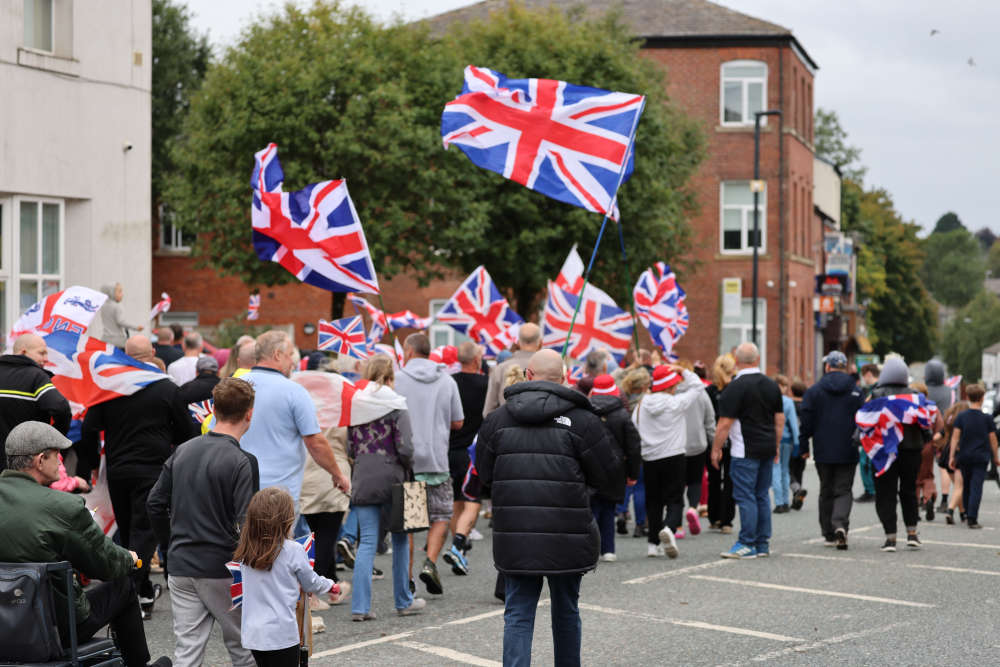
A protest took place in Heywood today, Saturday 30 August, billed by organisers as peaceful, and on the surface, it was. Concerned residents gathered, marched a few laps around the town centre’s one-way system, and listened to a series of impassioned speeches.
But layered beneath the homemade placards and family-friendly framing was a tension that has become increasingly familiar, the collision between grassroots activism and the shadow of far-right rhetoric.
The protest, live-streamed in part by Roch Valley Radio and other members of the public, included chants of “Tommy Tommy Robinson”, a reference to the founder of the English Defence League, and slurs aimed at Labour leader Keir Starmer, including “Keir Starmer is a w#nker.” At least one speaker publicly defended their right to support Robinson, stating: “I don’t know 100% about the guy... all I know is he stands for some of the things I stand for.”
That defence raises a crucial question: can a protest still be considered peaceful and moderate when it amplifies the slogans of a figure widely associated with far-right extremism, Islamophobia, and criminal convictions?
Former Rochdale Council leader Colin Lambert, who spoke at the protest but stressed he had no role in its organisation, seemed keen to address this concern. “Let’s be clear,” he told the crowd. “I’ve been called far right before, but I’ve never been far wrong.” In his remarks, Lambert sought to reclaim national pride from what he suggested were unfair associations with extremism. “Wales, Scotland and Ireland have always flown their flags with pride... it wasn’t far right then, it isn’t far right now.”
He continued: “The Colin Lambert who still cares, who came out of retirement to teach children, no one’s going to take that away.”
Lambert, who represented Heywood for 18 years and served as council leader, urged the crowd to keep the protest civil and lawful. “When we held a peaceful protest last time, you were fantastic. Let’s show the council and the government that we can do it peacefully, properly, and that our voices will be heard.”

But his measured appeal sat in contrast with other speakers who invoked phrases like “evil in our schools,” warned of “50 men on bail” walking the streets under police investigation, and described the issue as a fight for the “soul of our nation.”
One former special needs teacher described herself as having once “taught in nearly every school in Rochdale” during the grooming gang cases. She claimed that because she had remained silent then when it was happening, she would now “speak up,” framing the protest as a battle against what she described as a “common enemy of pure evil.”
While no evidence was presented to support some of these more extreme claims, the crowd responded with cheers and continued chants that blurred the line between safeguarding concerns and far-right activism.
This blurred line is not new. In towns across the UK, some community-led protests have risked being co-opted by groups or messages with more extreme political ideologies, even when organisers themselves reject such associations. The distinction between standing up for children’s safety and fuelling fear-driven nationalism is one that deserves scrutiny.
Colin Lambert’s speech appeared to attempt a balancing act, acknowledging public anger while trying to steer the tone back toward lawful, democratic expression. “I was told I was noisy as a baby,” he joked. “No one’s ever shut me up, and they won’t today.” But for every calm appeal, there was another voice insisting that “we are the last line of defence” or that “the state has failed,” fuelling a more apocalyptic and conspiratorial tone.
Ultimately, peaceful protest is a cornerstone of British democracy. But when chants begin to echo those names of the far right, whether deliberately or not, it forces us to consider where the line is drawn. When slogans tied to extremist figures are normalised in community marches, it can dilute legitimate concerns with dangerous overtones.
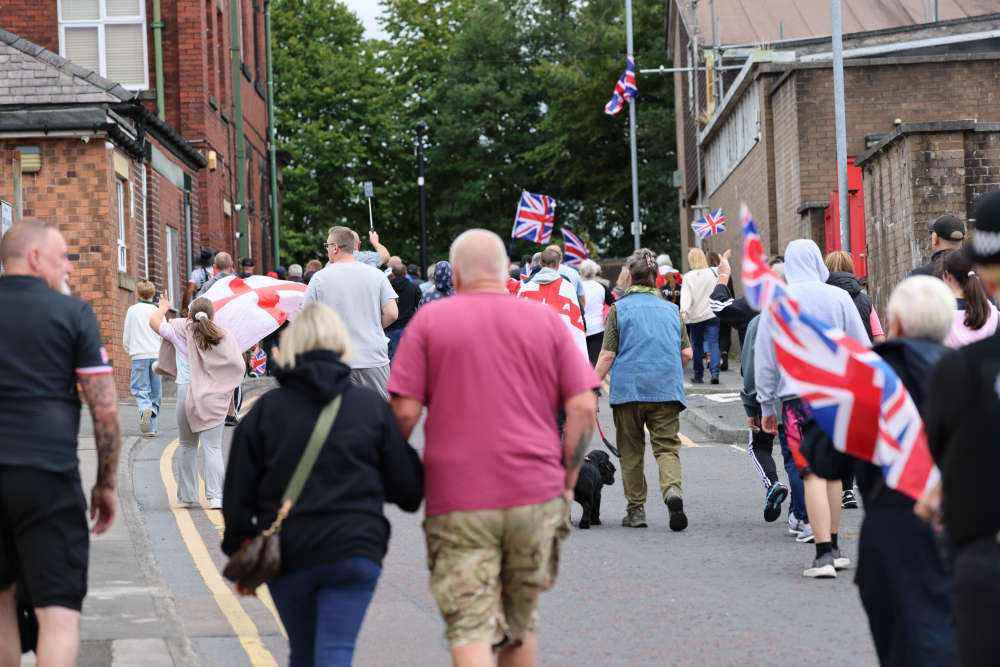
Perhaps the real challenge is not whether such protests have the right to exist; they do. But whether they can remain rooted in truth, civility, and fact, without becoming platforms for something far more divisive.
Roch Valley Radio has come under criticism from some protest supporters in recent weeks, not for what we’ve reported, but for what we haven’t. We’ve been accused of “not backing the cause” or “being Labour mafia media” simply for remaining neutral.
Let us be clear: Roch Valley Radio has no political affiliation. We do not take sides. Our duty is to report facts, verify claims, and reflect the range of voices in our community, but not to amplify unverified allegations or endorse political messaging of any kind.
Despite this, members of our team have received abuse and threats simply for doing their jobs. This is not only unacceptable, it undermines the very democratic principles that allow protests like today’s to take place.
We will continue to report impartially, without fear or favour, because an independent local media matters, now more than ever.


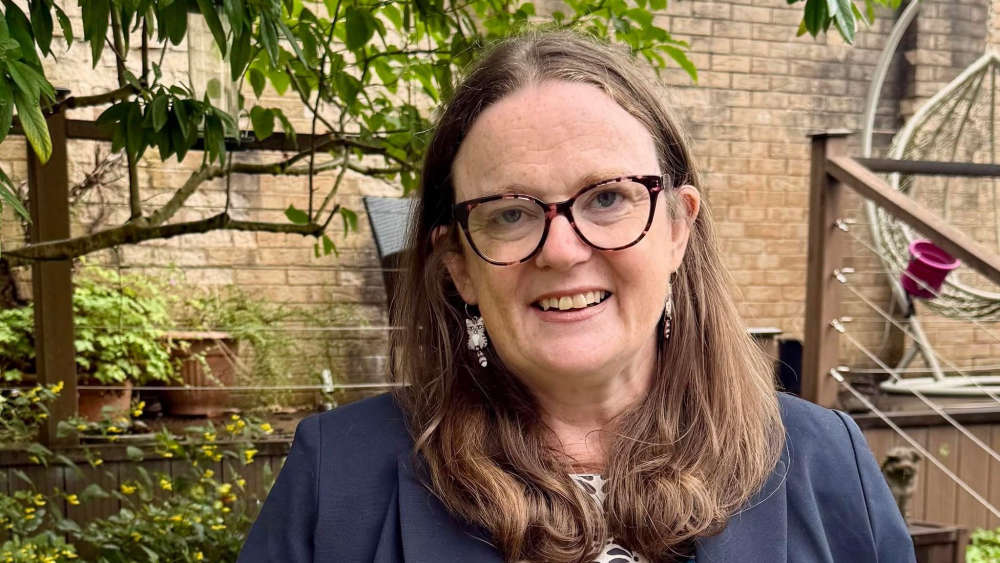 Conservatives select Emma Lee as candidate for Tottington by election
Conservatives select Emma Lee as candidate for Tottington by election
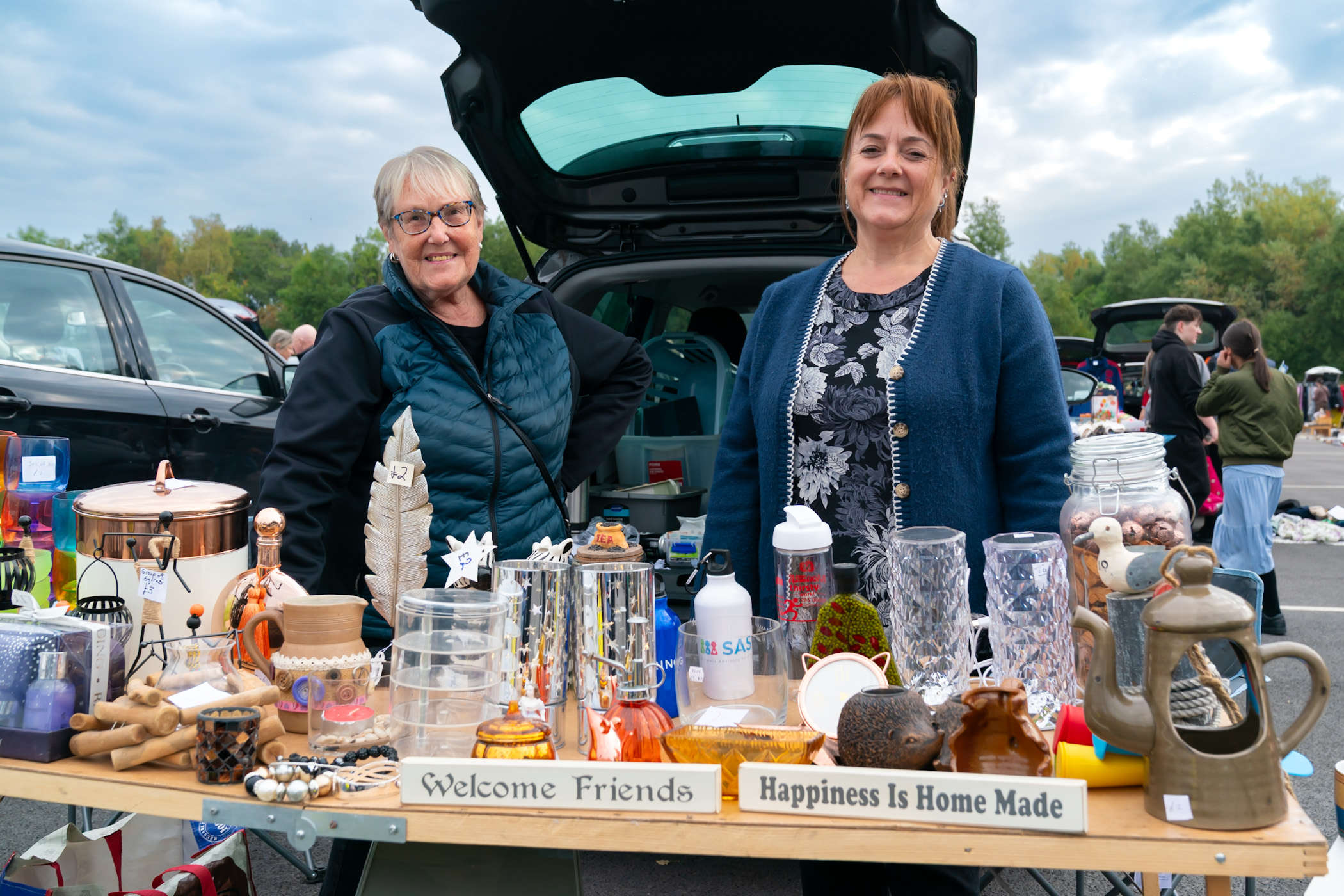 Bowlee car boot sale returns for the 2026 season
Bowlee car boot sale returns for the 2026 season
 Inside the major refurbishment transforming Tenpin Rochdale
Inside the major refurbishment transforming Tenpin Rochdale
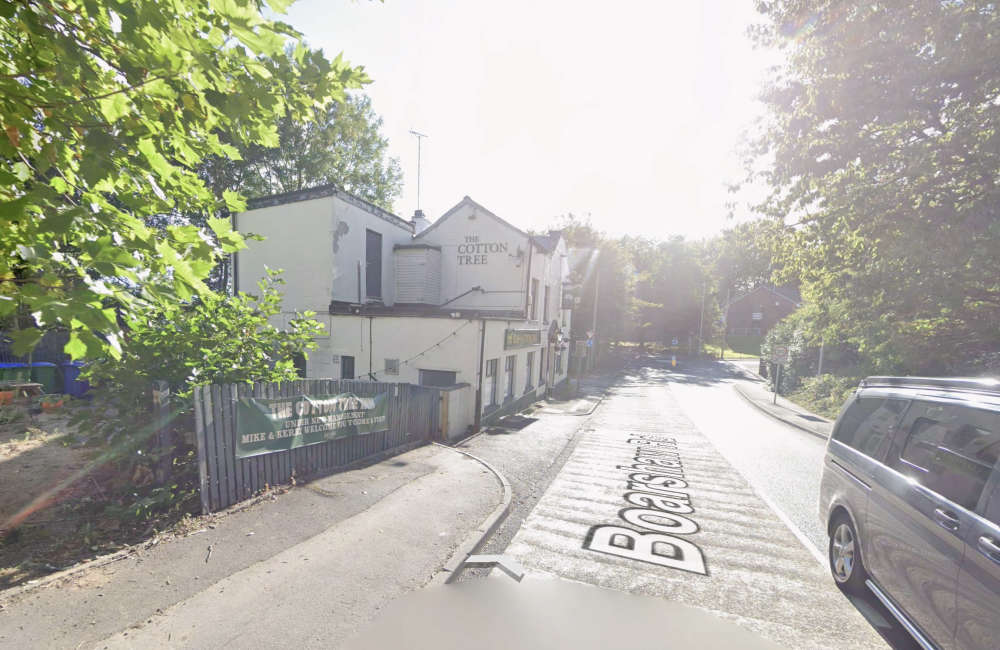 Former Middleton pub could reopen as convenience store after closure
Former Middleton pub could reopen as convenience store after closure
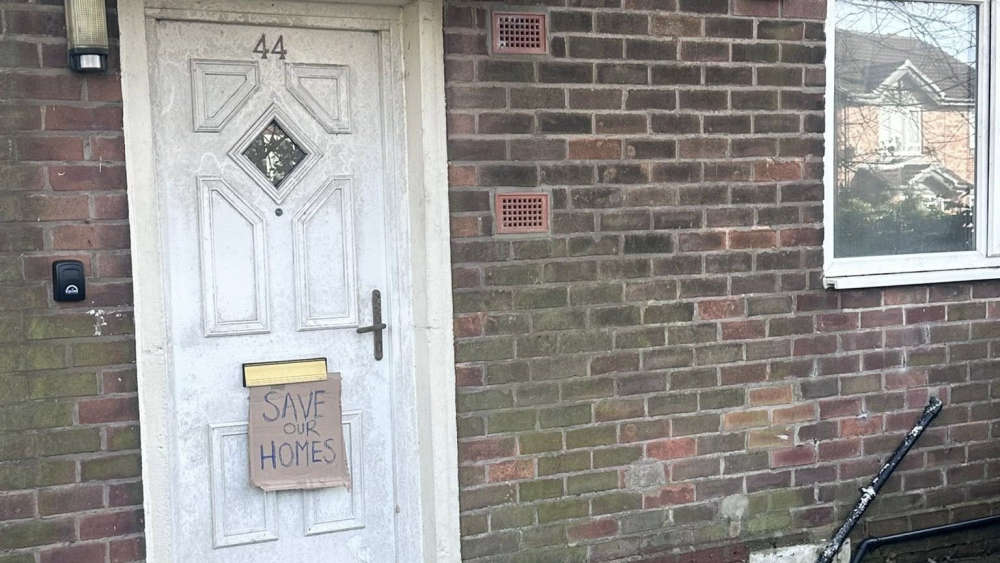 Councillors raise concern over Riverside Housing sale of social homes in Middleton
Councillors raise concern over Riverside Housing sale of social homes in Middleton
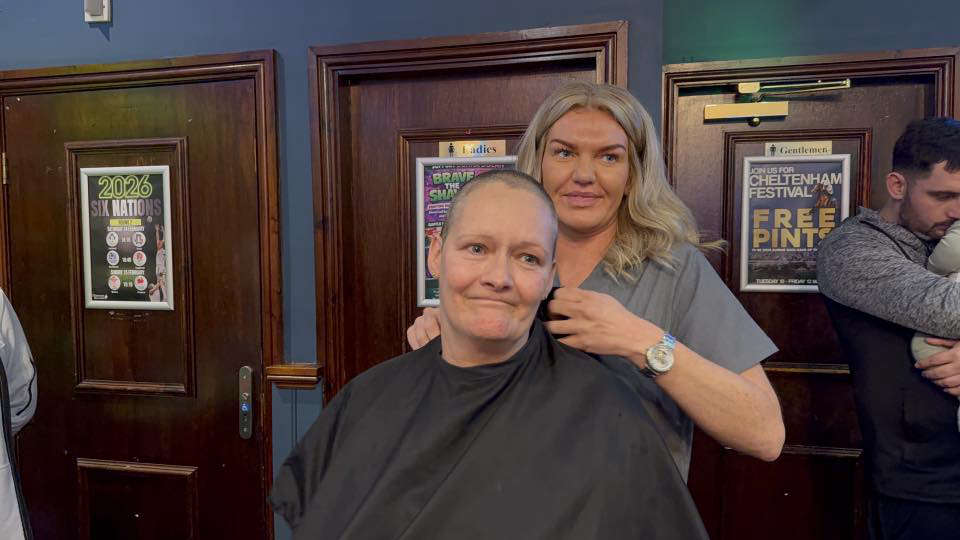 Heywood community raises £1799.65 as Donna Dolan shaves hair for Macmillan
Heywood community raises £1799.65 as Donna Dolan shaves hair for Macmillan
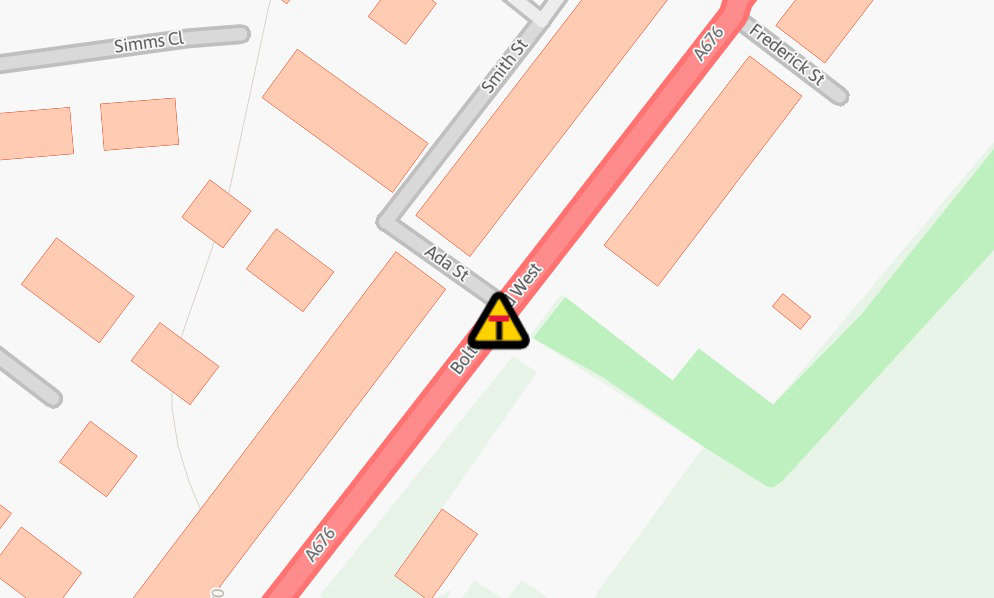 Road closure in Ramsbottom
Road closure in Ramsbottom
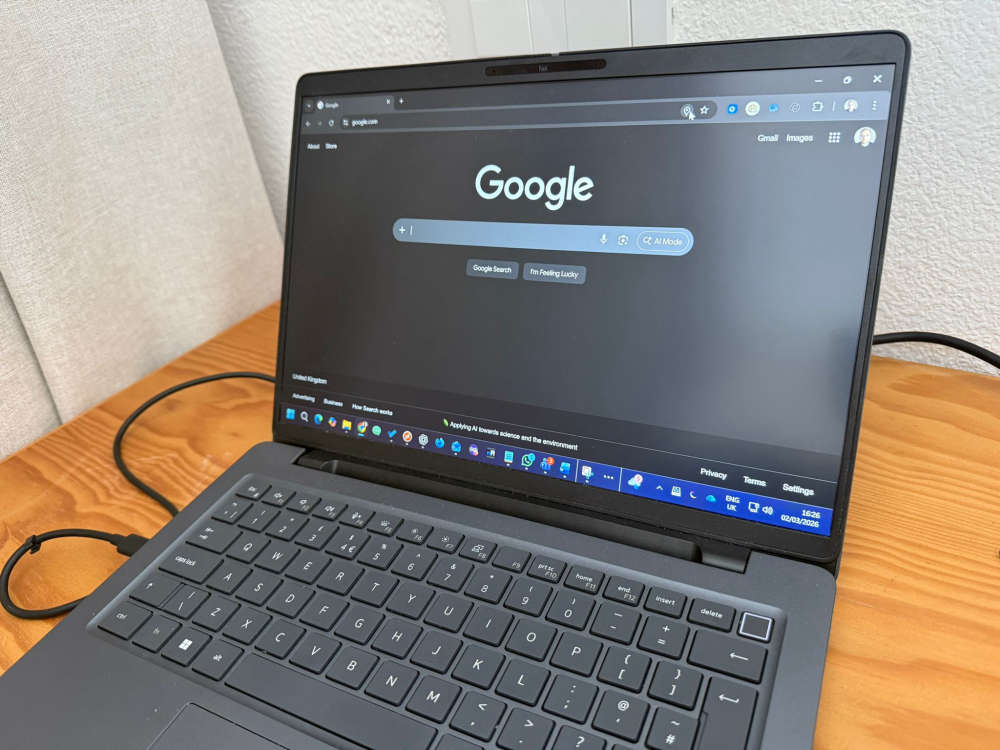 Rochdale families urged to shape national consultation on keeping children safe online
Rochdale families urged to shape national consultation on keeping children safe online
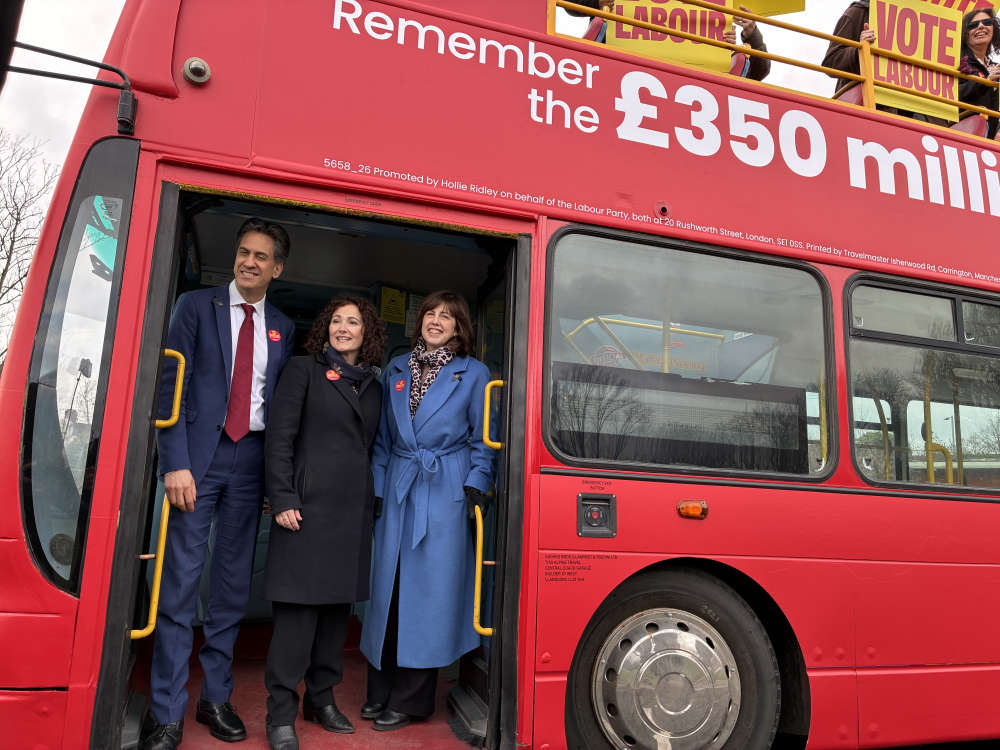 Civil war erupts as Labour activists in Gorton and Denton say party is ‘not willing to change’
Civil war erupts as Labour activists in Gorton and Denton say party is ‘not willing to change’
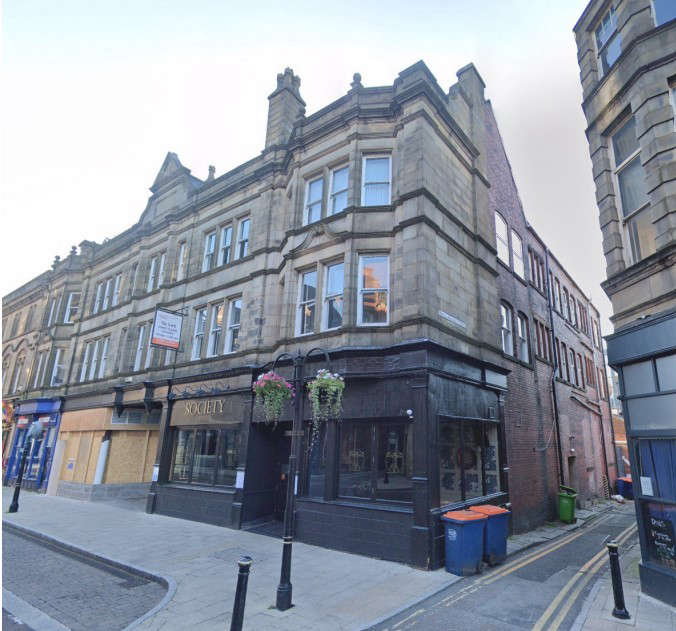 Silver Street offices approved as temporary housing
Silver Street offices approved as temporary housing
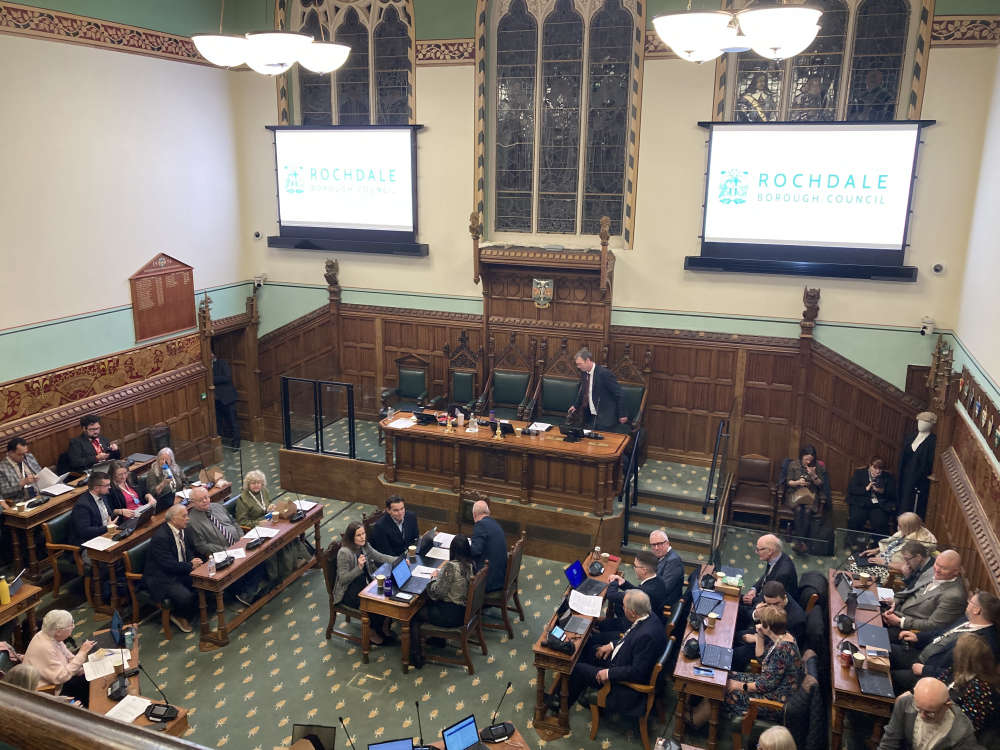 All the major projects Rochdale can expect from capital funding
All the major projects Rochdale can expect from capital funding
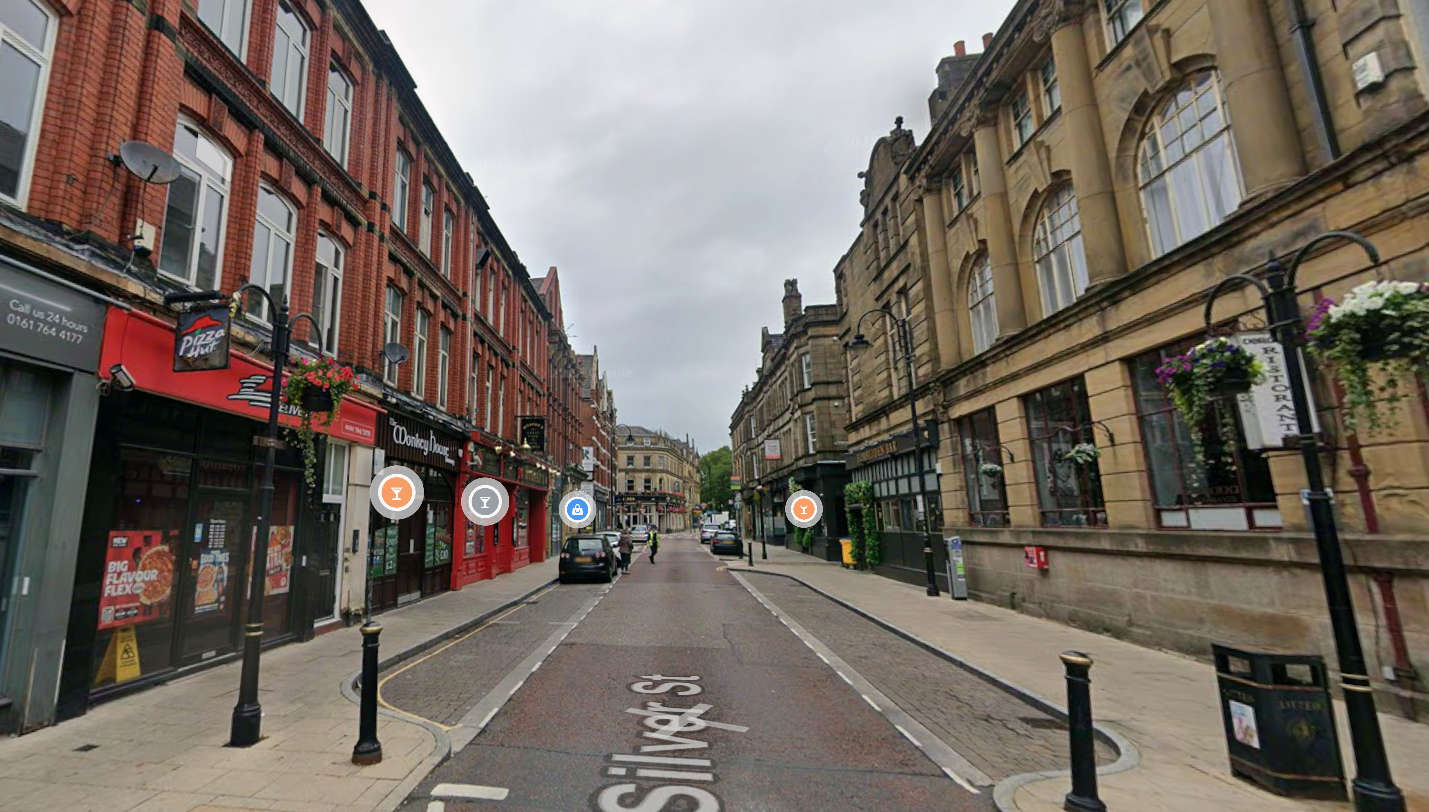 Emergency services respond after people report illness at Bury premises
Emergency services respond after people report illness at Bury premises




Comments
Add a comment